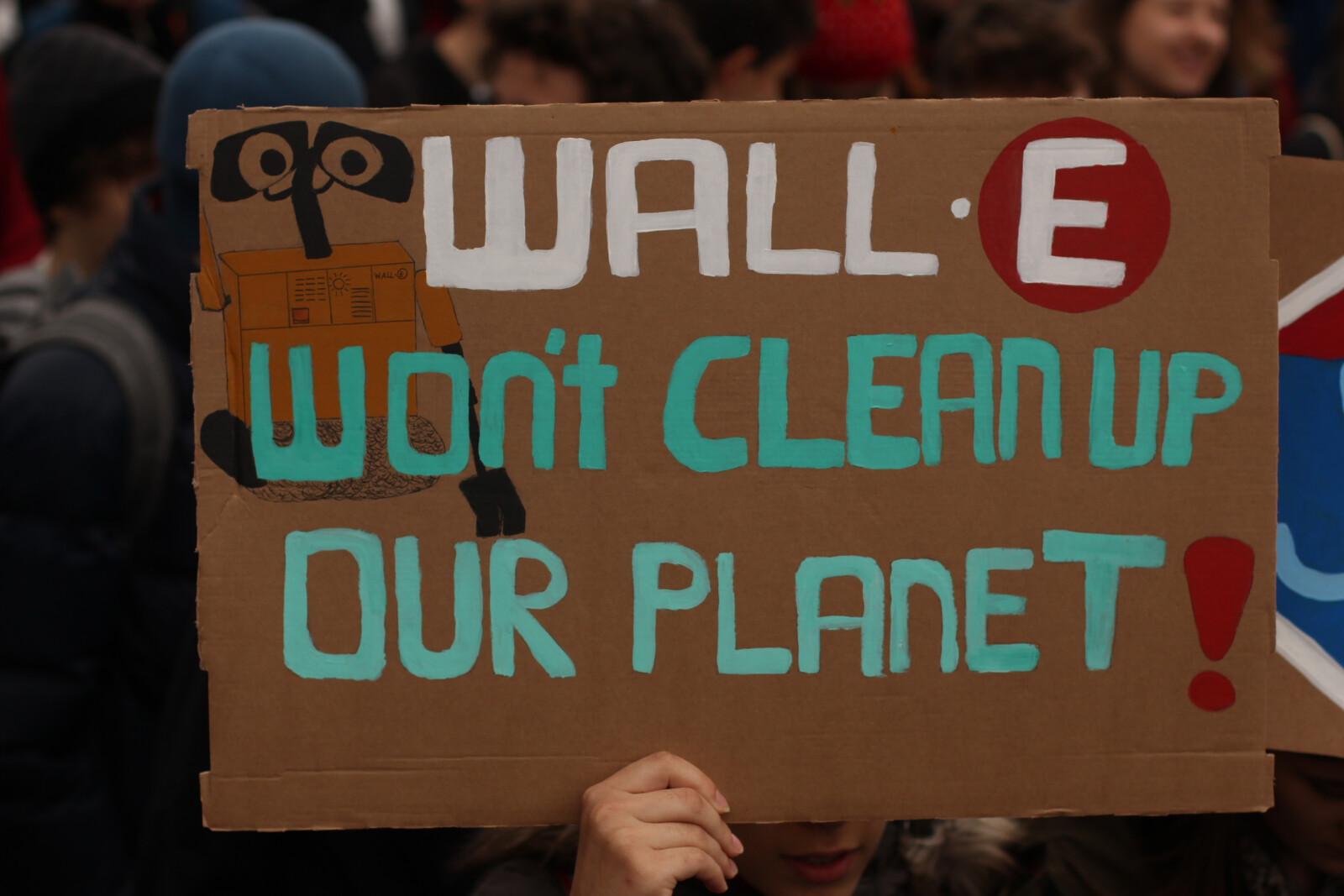The Ethics of Representing Corporations in Climate Change Litigation
The intersection of environmental science and law presents a unique platform for instigating systemic changes towards sustainability. Increasingly, class action lawsuits are being leveraged to hold governments and corporations accountable for environmental degradation.

This article explores the role of environmental class actions in driving significant change. It delves into notable case studies, the implications for corporate accountability, and the challenges inherent in this form of litigation.
The discussion further investigates how individuals can participate in these actions to influence future trends in eco-litigation. Ultimately, it addresses how these legal efforts can contribute to global sustainability.
Through an exploration of this timely issue, this article provides a comprehensive understanding of the power and potential of environmental class actions in shaping a sustainable future.
Key Takeaways
- Environmental class actions can consolidate resources and enable individuals to sue corporations, resulting in significant settlements or judgments.
- Effective litigation strategies, choosing the right representative for the class, framing legal arguments, and employing expert testimony are success factors in environmental class actions.
- Proving causality and navigating procedural rules can be challenges in environmental class actions, but they can drive significant change and hold those who harm the environment accountable.
- Environmental class actions play a crucial role in promoting ecological justice, protecting biodiversity, challenging harmful practices, and pushing for stricter environmental regulations.
Understanding the Basics of Class Actions
Class actions, inherently collective lawsuits where a group of people who have suffered similar harm band together to sue a defendant, form a pivotal part of the legal landscape. Originating from the United States in the mid-twentieth century, Class Action Origins have evolved over time, becoming a powerful tool for justice. This type of legal action enables individuals, who might otherwise lack the resources, to bring suit against corporations or entities causing harm.
In the realm of environmental law, class actions can serve as an effective litigation strategy. They have the potential to hold corporations accountable for environmental harm, which individual lawsuits may not accomplish due to their limited scope. A collective lawsuit can consolidate resources, thereby creating a more potent force against defendants.
The success of an environmental class action largely depends on the litigation strategies employed. These strategies can range from choosing the right representative for the class, framing the legal arguments effectively, to employing expert testimony to prove causality between the defendant's actions and the harm suffered by the class. A well-executed strategy can result in significant settlements or judgments, which can both compensate the victims and deter future harmful behaviors.
However, it should be noted that environmental class actions are not without their challenges. Proving causality in environmental harm cases can be complex and costly. Additionally, the legal system's procedural rules can pose challenges for the collective action. Yet, despite these hurdles, environmental class actions have the potential to drive significant change, by holding those who harm the environment accountable and signaling a strong deterrent for others.
The Intersection of Law and Ecology
The intricate interplay between legal frameworks and ecological considerations is a pivotal aspect of modern environmental jurisprudence, with potential to profoundly influence the sustainability of our planet. This interplay is made evident through the concept of Legal Biodiversity. This term refers to the variety of legal instruments, policies, and regulations that are employed to protect and conserve biological diversity. Legal Biodiversity, therefore, serves as a crucial tool in preserving the world's ecosystems and ensuring the long-term survival of various species.
The intersection of law and ecology also manifests in the form of Ecological Justice. This concept emphasizes the distribution of environmental benefits and burdens among people, and it involves both intragenerational and intergenerational fairness. Ecological Justice is crucial in environmental class actions, as it ensures that the rights of present and future generations to a healthy and balanced ecosystem are upheld.
Environmental class actions can catalyze change in this area by challenging harmful practices, setting legal precedents, and demanding accountability from corporations and governments. They serve as a vital mechanism for enforcing environmental laws and promoting ecological justice, thus ensuring the protection of biodiversity.
The potential of environmental class actions to drive change is immense. By leveraging the power of the law, these collective legal actions can challenge environmentally detrimental practices, enforce ecological justice, and push for stricter environmental regulations. This convergence of legal and ecological spheres underscores the importance of an integrative approach in addressing environmental issues. As such, the significance of legal biodiversity and ecological justice in the realm of environmental law cannot be overstated.
Notable Cases in the Fight for Sustainability
Prominent litigation in the pursuit of sustainability has been instrumental in influencing policy changes and holding corporate entities accountable for their actions. These legal proceedings underscore the significance of environmental justice, demonstrating how public interest litigation can effectively address environmental challenges and promote sustainability progress.
A notable case in this realm is 'Massachusetts v. Environmental Protection Agency', where several states and environmental groups successfully sued the EPA for its failure to regulate greenhouse gas emissions. The Supreme Court's decision in this case reaffirmed the EPA's responsibility under the Clean Air Act to protect the public from harmful pollutants, significantly advancing sustainability progress.
Similarly, 'Juliana v. United States' presented an innovative approach to environmental justice, as it asserted the constitutional right of young people to a stable climate. Though the case was dismissed, it sparked global discussions about intergenerational equity and the legal responsibilities of governments to address climate change.
The 'Niger Delta v. Shell' case is another instance where environmental class actions played a pivotal role. This case focused on the oil spillage in Nigeria, holding Shell accountable for widespread environmental degradation. The case demonstrated the potential of class actions in ensuring corporate responsibility and advancing sustainability.
These cases have not only set legal precedents but have also served as catalysts for change in environmental policies and corporate behaviors, driving sustainability progress and amplifying the call for environmental justice. They highlight the potential of class actions in the pursuit of a sustainable future, demonstrating how legal mechanisms can be harnessed to address environmental injustices and advocate for change.
Role of Lawsuits in Corporate Accountability
Legal proceedings have emerged as powerful tools in holding corporations accountable for breaches of environmental responsibility, thereby underscoring the pivotal role of lawsuits in the fight for sustainability. As environmental concerns continue to escalate, legal avenues are increasingly seen as an effective means of enforcing corporate responsibility and accountability. Lawsuits offer a formal platform for addressing environmental harm, compelling corporations to adhere to established environmental laws and regulations.
However, corporations often exploit legal loopholes to evade accountability. For instance, they may downplay their environmental footprints, underreport emissions, or even lobby for regulatory changes that favor their operations. Such loopholes allow corporations to continue their harmful activities while avoiding severe legal consequences. Litigation, therefore, serves as a critical check and balance, helping to close these gaps and ensure that corporations are held to account for their environmental impact.
Litigation financing plays a vital role in this context, providing the necessary financial resources for plaintiffs to pursue environmental class actions. This form of funding empowers individuals and communities to take on powerful corporations, reducing the financial risk associated with lengthy and costly legal battles. In this way, litigation financing can significantly enhance the capacity of environmental lawsuits to drive meaningful change.
The role of lawsuits in enforcing corporate accountability for environmental harm is thus profound. They bridge the gap between policy and practice, ensuring that corporations cannot merely pay lip service to sustainability but must take tangible steps to reduce their environmental impact. The continued use of legal mechanisms to challenge corporate irresponsibility is vital in the fight for a more sustainable and environmentally conscious future.
Class Actions Against Governments
In a similar vein, litigation against governments has emerged as another powerful tool in holding public authorities accountable for their role in exacerbating or failing to address environmental issues. This has been particularly evident in the sphere of class actions, where groups of individuals or entities join together to enforce governmental liability for harm to the environment.
From a global standpoint, the rise of such actions reflects diverse international perspectives on environmental governance and the role of the judiciary in enforcing environmental rights and duties. In some jurisdictions, the principle of governmental liability for environmental harm is well established; in others, it remains a subject of debate and legal evolution.
These class actions against governments often hinge upon the duty of care that public authorities owe to their citizens. For instance, if a government fails to implement or enforce environmental legislation, or if it contributes directly to environmental harm through its actions or omissions, it may be held liable for any resulting damage. This liability can be civil, administrative, or even criminal in nature, depending on the jurisdiction and the severity of the environmental harm.
The impact of litigation against governments is twofold. Firstly, it can compel governments to take action to address environmental problems, thereby driving positive change. Secondly, it can provide a mechanism for those affected by environmental harm to seek compensation, thereby addressing some of the social and economic impacts of environmental degradation. This approach, leveraging the power of the judiciary, pushes for accountability and fosters a culture of environmental responsibility within government ranks, marking a significant step towards a sustainable future.
The Effect on Policy and Legislation
Critical to understanding this discourse is the reverberating effect that such litigation has on policy-making and legislative amendments.
Environmental class actions often serve as a catalyst for change, exposing policy loopholes and prompting legislative impacts that can drive sustainable practices. These lawsuits often reveal the inadequacies or deficiencies within existing environmental laws, prompting a review and subsequent amendment of legal provisions that do not adequately protect the environment.
Further, class actions often bring to the fore the need for a more rigorous regulatory framework. The public outcry and media attention generated by these lawsuits can pressure lawmakers to enact more stringent laws, fostering a more proactive approach to environmental protection. The legislative impacts may include tighter regulations on industrial emissions, stricter penalties for environmental infractions, or compelling corporations to adopt greener practices.
Moreover, these lawsuits can also influence policy direction by compelling governments to adopt more environmentally friendly policies. This is often achieved through a two-pronged approach: litigation exposes the negative consequences of existing policies, while public sentiment, galvanized by the lawsuit, demands change. Therefore, class actions not only result in compensation for the affected parties but also contribute to the broader goal of environmental conservation by compelling a policy shift.
Environmental class actions thus play a seminal role in driving legislative and policy change. These lawsuits expose policy loopholes, precipitate legislative impacts, and force governments to reassess their environmental policies. Through this dynamic process, class actions contribute significantly to the ongoing efforts to protect and preserve the environment.
Overcoming Challenges in Environmental Litigation
Overcoming the inherent challenges associated with litigation in the realm of nature conservation and protection necessitates strategic planning and adept execution. Environmental lawsuits often involve complex scientific evidence and require substantial financial resources, hindering the progress of such legal actions. Moreover, the adversarial nature of conventional litigation can exacerbate conflicts rather than promote cooperation and consensus.
Litigation financing emerges as a solution to the financial roadblock in environmental litigation. It is a mechanism where a third party, unrelated to the lawsuit, provides funds to a party involved in litigation in return for a portion of the monetary judgment or settlement. This model allows environmental non-governmental organizations (NGOs) and other entities involved in nature conservation to pursue legal action without the burden of upfront legal costs.
Environmental NGOs play a critical role in these litigations. These entities often possess the necessary expertise and resources to navigate the intricacies of environmental laws and regulations. Moreover, their commitment to conservation serves as a driving force in initiating and sustaining these legal battles.
However, environmental NGOs and other stakeholders must also focus on fostering collaborative relationships with governments, businesses, and communities. These partnerships can help in addressing environmental issues more effectively and sustainably, reducing the reliance on litigation as the primary tool for environmental protection.
Therefore, strategic planning, litigation financing, and the robust involvement of environmental NGOs are essential to overcoming challenges in environmental litigation. These elements combined can significantly drive change and further the cause of conservation and protection of nature.
Future Trends in Eco-Litigation
Having delineated the challenges associated with environmental litigation, it is imperative to cast an analytical gaze upon the prospective trajectories of eco-litigation. The foreseeable future holds significant transformations in this domain, characterized by novel legal strategies and instruments.
One such emergent trend is the escalating involvement of litigation financing in environmental lawsuits. This practice involves third-party funders providing capital to litigants in exchange for a portion of the potential financial recovery. With the high costs associated with environmental lawsuits, this trend is poised to catalyze the initiation of more environmental class actions. The increased accessibility to financial resources will empower individuals and communities to seek legal redress for environmental harm and thus contribute to driving change. Furthermore, it may also stimulate greater accountability among corporations, as litigation financing can level the financial playing field between large corporations and smaller litigants, thereby discouraging environmentally harmful practices.
Simultaneously, the growth of greenwashing lawsuits represents another significant trend. Greenwashing, the practice of making unsubstantiated or misleading claims about the environmental benefits of a product, service, or company, has been increasingly scrutinized through legal channels. Lawsuits targeting greenwashing not only hold corporations accountable for deceptive marketing practices but also promote transparency and honesty in environmental claims. This trend can potentially exert pressure on corporations to genuinely adopt sustainable practices instead of resorting to deceptive green pretensions.
In light of these evolving trends, the landscape of eco-litigation appears poised for significant change. The growth of litigation financing and greenwashing lawsuits suggest that the future of environmental class actions could be marked by increased accessibility and corporate accountability, thereby reinforcing their role as potent instruments for driving environmental change.
How Individuals Can Participate
In the rapidly evolving landscape of eco-litigation, active participation of individuals is paramount, not only in initiating lawsuits but also in supporting and shaping the legal strategies to address environmental issues more effectively. It is through grassroots involvement that individual voices can collectively push for legal reforms and challenge corporate entities contributing to environmental degradation.
Personal litigation, an avenue where an individual can directly sue a corporate entity or the government for environmental harm, has gained significant traction. However, it requires extensive knowledge about environmental laws, and often, substantial financial resources. Despite its challenges, personal litigation empowers individuals to hold violators accountable, contributing significantly to the broader eco-litigation movement.
Moreover, individuals can participate by supporting class action suits. These are legal actions where a group of people who have experienced the same injustice seeks collective legal redress. By supporting these, individuals not only share the burden of litigation costs but also amplify the impact of their legal actions.
Grassroots involvement also extends to public awareness campaigns, lobbying for stronger environmental legislation, and pushing for corporate accountability. Individuals can leverage social media platforms and other digital tools to rally support, disseminate information, and pressure entities to adhere to environmental laws.
The role of individuals in driving change through eco-litigation is indeed substantial. It is their collective actions that can shape the future of environmental law, fostering a more sustainable and equitable world. Active participation, personal litigation, and grassroots involvement are significant catalysts in this transformative process.
The Long-Term Effects on Global Sustainability
The long-term consequences of eco-litigation on global sustainability are profound, shaping the destiny of our planet by enforcing accountability for harmful practices and promoting adherence to sustainable policies. These class actions serve as a critical tool for ensuring that corporations and governments alike are held to account for actions that might otherwise compromise the integrity of our ecological systems.
One of the most significant impacts of eco-litigation is the advancement of Sustainability Education. Through high-profile cases, stakeholders and the wider public gain a clearer understanding of the importance of sustainable practices and the potential consequences of neglecting them. This educational aspect fosters a more informed public, capable of making environmentally-conscious decisions, thus contributing to a more sustainable future.
Furthermore, these environmental class actions can also spur Green Innovations. The potential financial and reputational costs associated with being found guilty of unsustainable practices prompt many organizations to invest in developing and implementing greener, more sustainable technologies and procedures. This, in turn, can lead to significant advancements in eco-technology and sustainable practices, driving further progress towards global sustainability.
Moreover, the ripple effects of these class actions often extend beyond the immediate parties involved. Other entities may be motivated to improve their own practices in an effort to avoid similar litigation, thus driving a wider shift towards sustainability.
Therefore, the long-term impacts of environmental class actions are far-reaching, driving not only accountability for unsustainable practices but also fostering a more educated public and encouraging green innovation. This ultimately contributes to a more sustainable future, demonstrating the critical role that eco-litigation plays in promoting global sustainability.
Frequently Asked Questions
What are some prominent environmental organizations involved in class action lawsuits?
Prominent organizations engaged in environmental class action lawsuits often face Class Action Criticisms and Green Litigation Challenges.
Such entities include the Environmental Defense Fund, Greenpeace, Natural Resources Defense Council, and Sierra Club.
These organizations utilize legal proceedings to address environmental concerns, despite facing criticism regarding the effectiveness of class actions and encountering challenges in green litigation.
By leveraging environmental laws, they strive to drive change and safeguard the planet's health.
How can people donate to support environmental class actions?
Financial contributions towards environmental class actions can be made through various channels. These include:
- Direct donations to environmental organizations, which may provide tax benefits to donors.
- Crowdfunding platforms dedicated to environmental actions.
It is crucial to research the credibility of these platforms and understand the tax implications prior to donating.
Such contributions not only drive environmental change but also potentially offer fiscal advantages to the donors, thus making it a mutually beneficial act.
Can international laws and treaties influence environmental class actions in the United States?
International laws and treaties can indeed shape environmental class actions in the United States. These international norms provide comprehensive frameworks and standards, often inspiring domestic environmental policy and litigation. They can establish important environmental regulations and impact class action precedents. Class actions can rely on these international norms to justify their claims, driving policy changes and environmental protection. Therefore, international laws and treaties play a crucial role in influencing environmental class actions.
What are some of the most significant victories in environmental class action history outside the United States?
Significant victories in environmental class action history outside the United States have been numerous.
A notable instance includes the case against Shell in Nigeria, where the company was held accountable for oil spills.
This case highlights the importance of global impact analysis in class action mechanics.
Further, the Chevron-Ecuador dispute resulted in a significant $9.5 billion judgment for environmental damage, underscoring the potential of class action lawsuits to drive environmental change.
Are there any high-profile individuals or celebrities who have been involved in championing environmental class actions?
Indeed, notable individuals and celebrities have leveraged their influence to promote environmental class actions.
Actor Leonardo DiCaprio, for instance, has been a prominent advocate for environmental causes, using his platform to impact environmental policies.
Similarly, musician Sting's Rainforest Foundation has engaged in advocacy work to protect the Amazon's ecosystems.
These examples demonstrate how celebrity influence can significantly bolster the environmental advocacy approach, driving impactful change through legal avenues.
Conclusion
In conclusion, environmental class actions embody a potent tool for driving corporate accountability, influencing government policies, and promoting global sustainability.
The intersection of law and ecology facilitates the creation of robust checks and balances, fostering a more sustainable future.
However, challenges persist, necessitating continued participation from individuals.
As eco-litigation evolves, it remains crucial to harness its potential for impactful change.

This post has been generated by AI and was not reviewed by editors. This is Not legal advice. Please consult with an attorney.




